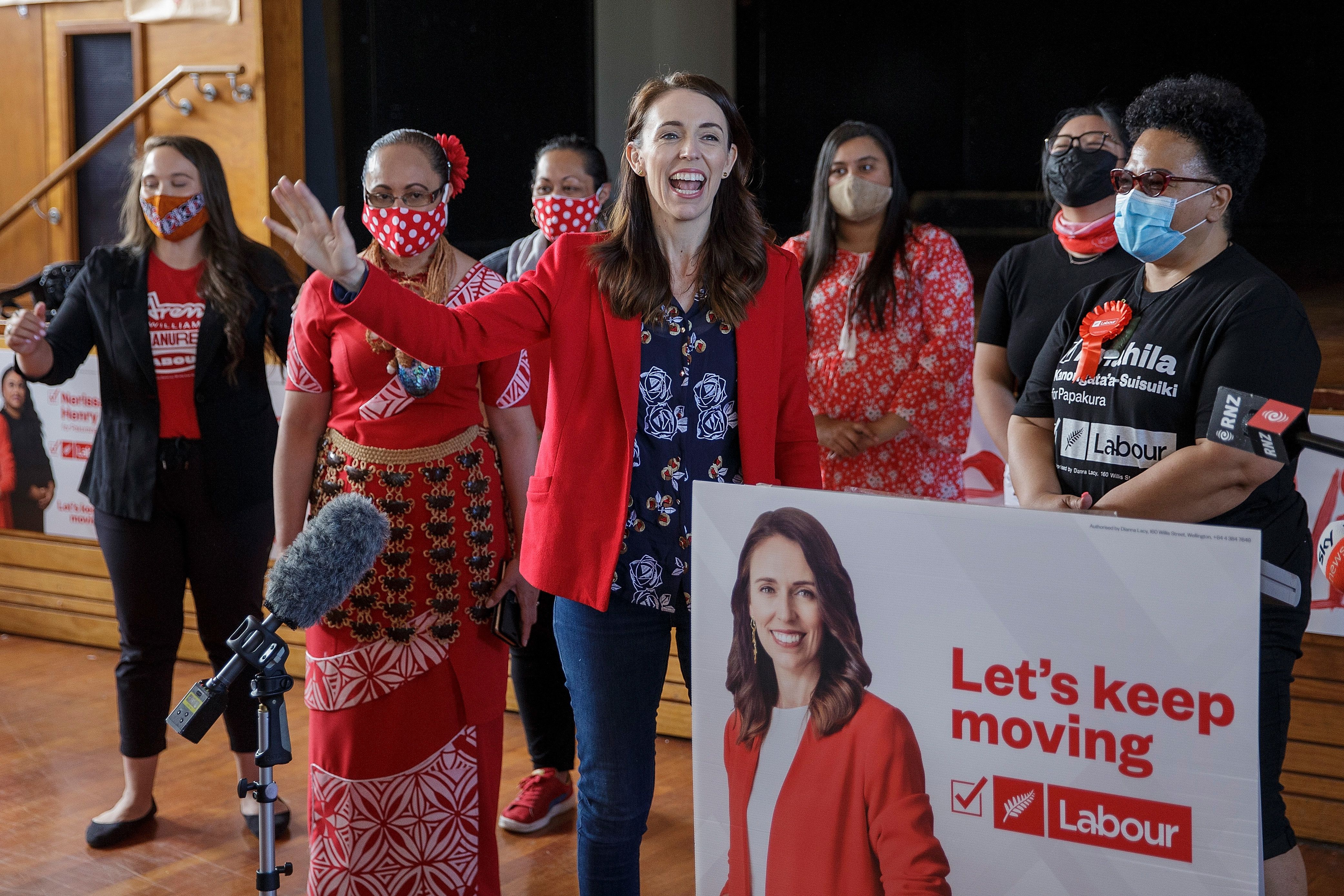In recent months, New Zealand's Prime Minister Jacinda Ardern has emerged as a global sensation, gracing the covers of Vogue and TIME and giving rise to a series of tweets about how great it would be to relocate to New Zealand.
And she's not just popular abroad. As New Zealanders head to the polls this week, her ruling Labour party has a double-digit lead. Ardern, the country's youngest living head of state, is all but assured to win a second term.
But it hasn't all been smooth sailing for Ardern in recent years. A closer look shows a society facing a number of serious challenges. So what accounts for Ardern's surging popularity? Why is she cruising to reelection?
Not all rosy. Before Ardern's effective handling of the pandemic boosted Labour's poll numbers, some analysts mused that Ardern, a darling-of the center- left, might be booted out of office after just one term.
That's because her government had failed to follow through on several key policy goals, including her flagship housing program, "KiwiBuild," intended to tackle the country's growing homelessness crisis. But after missing every single construction deadline, Ardern was forced to walk back her commitment, calling the plan "overly ambitious."
It was a massive setback for a prime minister who has sought to craft an image as a warrior for lower-income New Zealanders.
In the meantime, New Zealand's housing crisis has only gotten worse: Auckland, the most populous city, is one of the most expensive cities in the world to own a home, while a recent survey rankedall of New Zealand's major cities as "severely unaffordable."
Despite Ardern's efforts to tackle these bread and butter issues, the homelessness crisis has mostly deepened under her watch, while child poverty remains a persistent issue.
So why is Ardern so popular? During Ardern's relatively short time at the helm, New Zealand has faced a series of rare crises, including a rampage on two Christchurch mosques by a white supremacist that killed more than 50 people, as well as a string of natural disasters.
Now with the coronavirus onslaught, New Zealand's approach, which Ardern described as "go hard, go early," has been extremely effective at squashing the curve. (It included limits on domestic travel and early closures of school and non-essential businesses.) As a result, New Zealand's fatality rate is 0.5 per 100,000 population, compared with 66 in the US, and 4 in neighboring Australia.
Even beyond the success of her pandemic policies, Ardern has been widely praised for her compassionate and forthright leadership style. "There's a high level of trust and confidence in her [Ardern] because of that empathy," New Zealand's former prime minister Helen Clark recently toldthe Atlantic. This resonates beyond what might be considered her natural support base of social progressives.
The challenges ahead. While the victory of the Labour party is virtually assured at this point, New Zealand's incoming government will still face its share of significant challenges.
Economic recovery. New Zealand is currently suffering its worst recession since the 1980s. Between April and June alone, GDP shrank by more than 12 percent, largely because of lost income for the tourism industry, which generates $73.8 million (USD) per day. Steering the economic recovery while still waiting for a vaccine to be approved and distributed will not be an easy task.
China, China, China. Managing the relationship with Beijing has proven difficult for New Zealand's government in recent years. Ardern, a progressive and vocal human rights advocate, has sought to find a balance between condemning China (back in July, Wellington announced that it was suspending its extradition treaty with Hong Kong because of Beijing's draconian national security law) without ruining relations with a country that is New Zealand's top trading partner.
Still, Ardern has faced accusations of cowering in the face of Beijing's aggression, including on human rights issues, as well as in response to claims that China has meddled in New Zealand's own domestic affairs.
Looking ahead: Ardern's strong leadership during the pandemic has paved the way for her to win a second term. But will she be able to make progress on issues that have so far eluded her, while also addressing a once-in-a-lifetime economic crisis?
More For You
Tune in on Saturday, February 14th at 12pm ET/6pm CET for the live premiere of our Global Stage from the 2026 Munich Security Conference, where our panel of experts takes aim at the latest global security challenges.
Most Popular
Think you know what's going on around the world? Here's your chance to prove it.
At the Munich Security Conference, the mood is clear: Europe no longer assumes the United States will lead. In this Quick Take, Ian Bremmer reports from Munich, where this year’s theme, “Under Destruction,” reflects growing anxiety that the US itself is destabilizing the transatlantic alliance it once anchored.
Every year, the Munich Security Conference, the world’s leading forum on international security, releases data that sheds light on how citizens view global risks.
